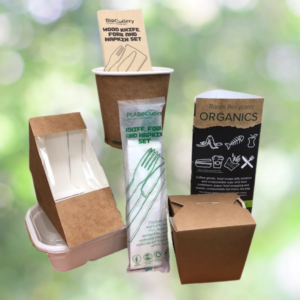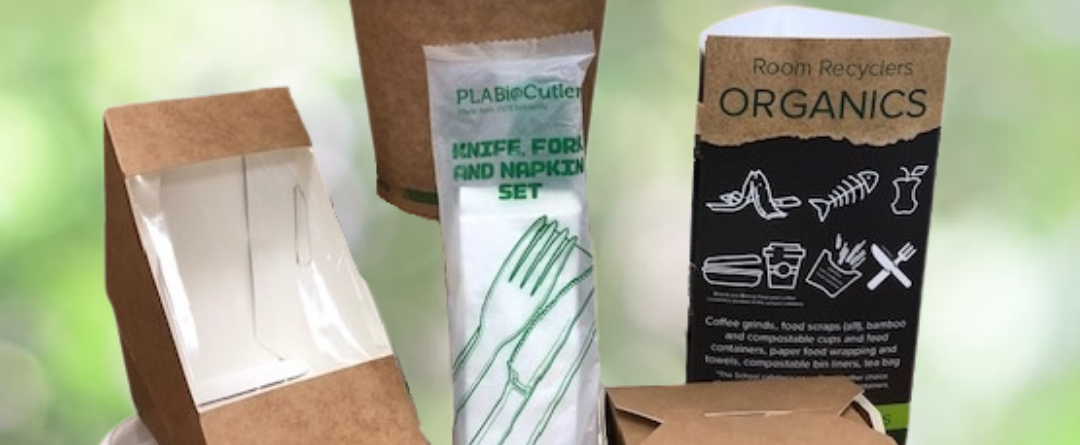Cafeteria embraces compost

Embracing recyclables and compostables, Trinity’s cafeteria has made it even easier to dispose of waste responsibly, creating a better future.
Every day in schools all over the world, an enormous amount of waste is created. From paper in classrooms to the wrappers on food, it’s no wonder that many schools are interested in reducing their footprint, finding ways to reduce their output and prioritise sustainability.
The Trinity Environmental and Sustainability Committee is a driving force in helping the School achieve some of its big goals. Some of Trinity’s sustainability targets include:
- A landfill diversion target of 100% by 2025
- Green travel: Increase active/sustainable travel by 20% for staff and students by 2025
- Printing: 50% reduction by 2025
They are big goals, there’s no denying it! However, with a team focused on making change, the School is already seeing shifts in the mindset of community members and significant organisational structures changing to promote sustainability.
One such example can be found in the Trinity cafeteria as they embrace fully-compostable packaging – making the cafeteria waste entirely recyclable or compostable.
The decision was important to balance individual responsibilities with organisational provisions, Mr Stephen Heanly, who heads up the sustainability committee, says.
“Students know that when they buy anything from the cafeteria, it can be put into the organic waste receptacle, regardless of whether there’s food waste on it or not.
“We really thought about this when working towards this change. If the students must stand at the bin and decide where they’re going to put their waste, they’ll almost always just put it all in the general waste bin. We want to make the decision, and direction, clear and simple so it’s easier for them to play their part.”
The change is just one step towards creating a more sustainable and environmentally-conscious space for students and staff to know they’re making a difference each day.
There are more steps to come and the committee has soft plastics in their sights. While it is not possible to recycle them via the School’s facilities at this time, the committee has plans for this to be the case in the near future. For now, soft plastic recycling can be done at home as normal.
Look out for more from the committee as they bring some big ideas to life and create a more mindful, sustainable environment for the Trinity community. Keep an eye on the School’s Sustainability webpage for the latest news.
















